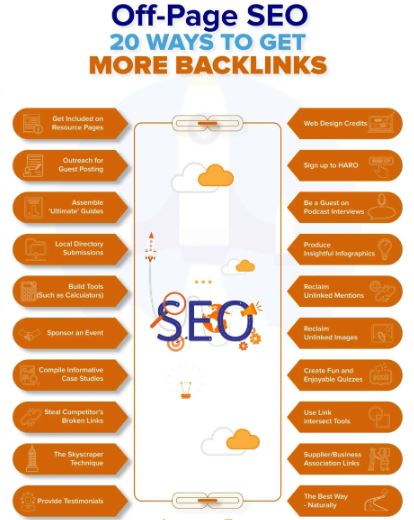Backlinking remains one of the most powerful SEO tactics for increasing organic search visibility and improving rankings. But in 2025, it’s not just about quantity—it’s about quality. Search engines like Google prioritize backlinks from authoritative, relevant sources to determine a website’s credibility and trustworthiness.
In this article, we’ll explore how to leverage backlinking effectively to boost your SEO results. We’ll cover the most current strategies for acquiring high-quality backlinks, the role of backlinks in overall SEO, and how to combine backlinking with other SEO techniques like content optimization, user experience (UX), and EEAT (Experience, Expertise, Authoritativeness, Trustworthiness). We’ll also discuss outdated practices that could hurt your SEO efforts and provide actionable tips for achieving long-term SEO success.
What is Backlinking and Why Does it Matter?
Backlinking, or link building, refers to the process of acquiring links from other websites that point back to your own. These links are considered “votes of confidence” by search engines. They indicate that your content is credible and relevant, making it more likely to appear higher in search results.
Why Backlinks Are Crucial for SEO in 2025
- Authority Signals: Google uses backlinks as a way to assess the authority and relevance of your website. High-quality backlinks signal to Google that your site is trustworthy and valuable.
- Referral Traffic: Backlinks don’t just help with SEO—they also drive referral traffic. When users click on a backlink leading to your website, it’s an opportunity to convert that traffic into customers.
- Better Rankings: Websites with more high-quality backlinks tend to rank higher in search results, which increases visibility and drives organic traffic.
How to Acquire High-Quality Backlinks in 2025
In 2025, the key to successful backlinking is focusing on quality rather than quantity. A few authoritative and relevant links will have far more impact than hundreds of low-quality ones. Here are some of the most effective ways to acquire valuable backlinks for your site.
1. Guest Blogging
Guest blogging involves writing content for other websites within your industry and including a link back to your site. It’s a win-win: you get a quality backlink, and the host website gets fresh, valuable content.
- Choose Relevant Sites: Focus on guest blogging for websites that are highly relevant to your niche and have a strong domain authority.
- Provide Value: Ensure your guest posts provide real value to the readers. Google values content that is informative, engaging, and helpful.
2. Broken Link Building
Broken link building is a technique that involves finding broken links on high-authority websites and offering your content as a replacement. This is beneficial for both parties—the website owner fixes a broken link, and you get a quality backlink.
- Find Relevant Broken Links: Use tools like Ahrefs or Screaming Frog to find broken links in your industry or niche.
- Reach Out Professionally: When reaching out to the website owner, be polite and professional. Suggest how your content fits as a replacement.
3. Create Shareable Content
Creating content that others want to link to naturally is one of the best ways to earn backlinks.
- Infographics and Data-Driven Posts: Infographics, original research, and data-driven articles are highly shareable and often get linked to by others.
- Create Comprehensive Guides: Long-form, in-depth guides and tutorials that answer common questions in your industry are valuable resources that other websites often link to.
4. Build Relationships with Influencers and Industry Leaders
Establishing connections with influencers and thought leaders in your industry can lead to valuable backlinks.
- Collaborate on Content: Partner with influencers for interviews, co-authored blog posts, or collaborative content that includes links to your site.
- Engage on Social Media: Engage with influencers on platforms like Twitter and LinkedIn. Building relationships can lead to organic backlink opportunities.
5. Skyscraper Technique
The skyscraper technique involves identifying high-performing content in your niche, creating something even better, and then reaching out to those who linked to the original content to suggest your superior version.
- Research Competitor Content: Find top-ranking content in your industry and look for ways to improve it.
- Reach Out to Linking Sites: Once you’ve created your content, reach out to websites that linked to the original content and suggest they link to your better version.
Best Practices for Using Backlinks to Improve Your SEO
To make the most of your backlinks, it’s essential to follow best practices that ensure they positively impact your SEO efforts.
1. Focus on Relevant Backlinks
Backlinks from authoritative sites within your niche are more valuable than links from unrelated or irrelevant websites. For example, if you sell running shoes, a backlink from a popular health blog is far more beneficial than one from a general entertainment site.
- Domain Authority: Aim to earn backlinks from websites with strong domain authority (DA). Tools like Moz’s Domain Authority Checker can help you identify high-quality domains.
- Contextual Relevance: Ensure that the content surrounding your backlink is contextually relevant to your site. Google values backlinks that appear within content that is thematically related.
2. Diversify Your Backlink Profile
A natural backlink profile consists of a variety of link types. Diversifying where your backlinks come from and how they are embedded is crucial to avoid penalties.
- Link Types: Aim for a mix of dofollow and nofollow links. Dofollow links pass link equity (SEO value), while nofollow links are valuable for diversifying your backlink profile.
- Anchor Text: Use a variety of anchor text for your backlinks. Over-optimization of anchor text (using the same keyword repeatedly) can be seen as spammy by search engines.
3. Ensure Backlinks Are from Trusted Sources
Always focus on acquiring backlinks from reputable, high-authority websites. Links from low-quality or spammy websites can hurt your SEO efforts rather than help them.

- Avoid Link Farms: Link farms (websites designed specifically for the purpose of selling backlinks) should be avoided. Search engines can penalize sites that participate in link farms.
- Focus on Niche Directories: Listing your website in niche-specific directories can provide relevant backlinks that improve your rankings.
Outdated Backlinking Practices to Avoid in 2025
Some backlinking techniques that worked in the past have become outdated and can even harm your SEO efforts today. Here are some practices to avoid:
- Buying Backlinks: Purchasing backlinks is a risky practice that can lead to penalties from Google. Focus on earning natural, high-quality backlinks.
- Excessive Link Exchange: While link exchanges used to be a common strategy, Google now sees excessive link exchanges as manipulative and a violation of its guidelines.
- Spammy Comment Backlinks: Posting comments on blogs or forums with the sole intent of acquiring backlinks is considered spammy and can lead to penalties.
How Backlinking Fits Into the Bigger SEO Picture
Backlinking is just one component of an effective SEO strategy. To fully leverage backlinks for better SEO results, they need to work in harmony with other SEO tactics:
- Content Optimization: Make sure your content is well-optimized for both users and search engines. Use relevant keywords and optimize your content for user intent.
- User Experience (UX): A great backlink won’t help much if your website has poor navigation, slow loading times, or an unresponsive design. Ensure that your site is user-friendly and mobile-optimized.
- Mobile-First Indexing: In 2025, mobile-first indexing is a standard practice for search engines. Your site’s mobile experience must be smooth, fast, and responsive.
- EEAT: Demonstrating experience, expertise, authoritativeness, and trustworthiness through quality content, expert opinions, and secure payment methods boosts both your site’s credibility and its ranking potential.
Summary and Actionable Checklist
To maximize the benefits of backlinking in 2025, you must focus on acquiring high-quality backlinks from authoritative, relevant sources. Follow these best practices and avoid outdated techniques to ensure that backlinks help improve your SEO and drive more organic traffic to your website.
Actionable Backlinking Checklist:
- Create Shareable Content that naturally attracts backlinks.
- Guest Blog on authoritative websites in your niche.
- Use the Broken Link Building strategy to replace dead links with your content.
- Leverage Influencer Marketing to acquire high-quality backlinks.
- Ensure Backlinks are Relevant and High-Quality from trusted sources.
- Avoid Outdated Techniques like buying backlinks or excessive link exchanges.
By following these strategies, you’ll build a strong backlink profile that not only improves your SEO but also enhances your online credibility and visibility.
Meta Description (150-160 words):
Learn how to leverage backlinking to improve your SEO results in 2025. Discover effective strategies for acquiring high-quality backlinks, including guest blogging, broken link building, and influencer collaborations. Avoid outdated techniques like buying backlinks and excessive link exchanges. This guide offers actionable tips to help marketers, bloggers, and SEO professionals build a strong backlink profile that boosts website rankings and drives organic traffic.
releated:Enhancing Your SEO with Links: Strategies for Success in Collaboration with an SEO Agency

